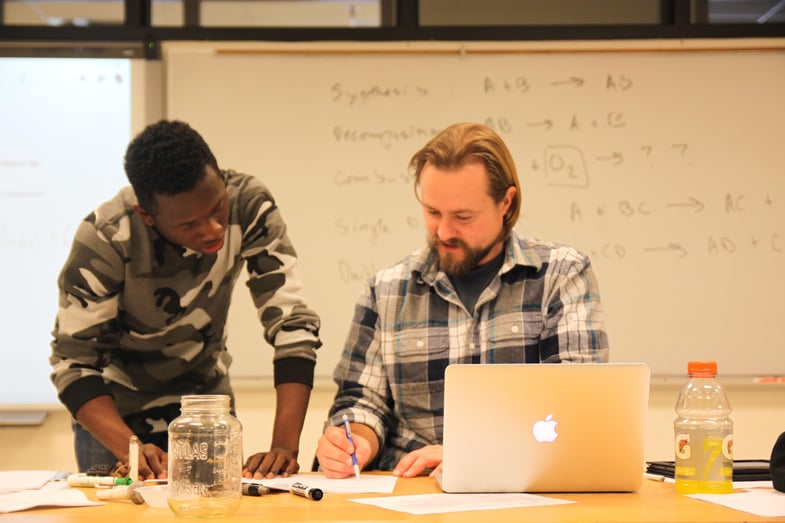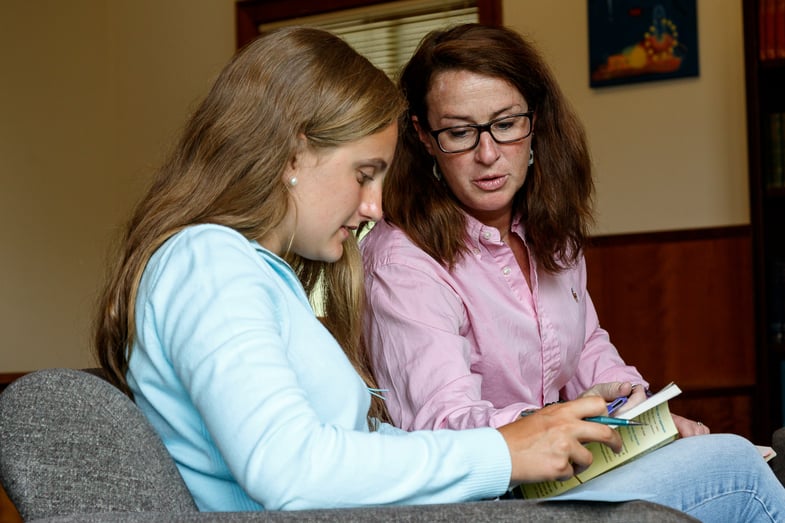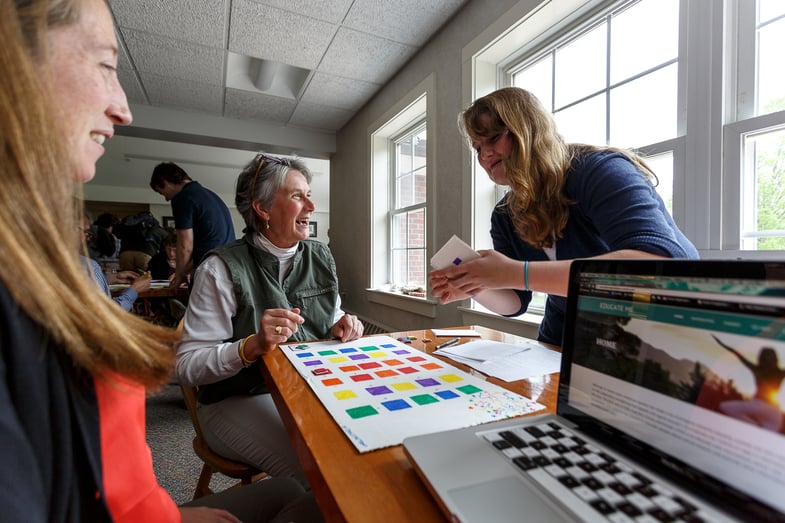We talk often about the importance of relationships in education. It is perhaps the most difficult quality of a school to articulate through a website or blog. A school’s culture is something so wholly unique, students must be immersed in it to truly appreciate it. At Proctor Academy, we believe the boarding school relationships formed between faculty advisors and students are central to sustaining the school culture that makes Proctor so special.

Last fall, we posted THIS BLOG on the importance of relationships at Proctor. In it, we referenced a Ted Radio Hour clip from Rita Pierson’s powerful Ted Talk “Every Kid Needs a Champion”. Pierson discusses the need for trusting relationships to serve as a foundation for student learning. Proctor’s faculty have spent considerable time learning about the neuroscience of the relational learning Pierson champions over the past year, coming to better understand the science behind what we have long known about the role trust plays in learning.

It is through these relationships that a student’s ability to explore new passions, embrace new challenges, interact with people and become engaged citizens of the world is enhanced. We believe developing a sense of trust between faculty and students unlocks the door to student learning unlike any other factor in a student’s education.

As a student transitions to Proctor, the role of the advisor becomes the single most important relationship in guiding a student through his or her time at Proctor. It is the advisor who supports the student during his or her transition, serves as the primary contact for parents and student with all school-related issues, and acts as a mentor, advocate, and academic counselor.
The advisor guides the student to discover new interests, while simultaneously holding the student accountable to community expectations and managing family expectations. Ultimately, it is the role of the advisor to develop a trusting relationship with each advisee that supports Proctor’s core values of respect, responsibility, honesty, and compassion.

For most students, the transition into classes and life at Proctor is seamless. For others, the transition can take a longer time. Knowing the support of a faculty advisor is rooted in looking out for each student’s best interest allows the student to travel along his or her own individual educational journey with confidence. This trust is ultimately the central contributor to our school culture that has evolved over time as a byproduct of these relationships.








